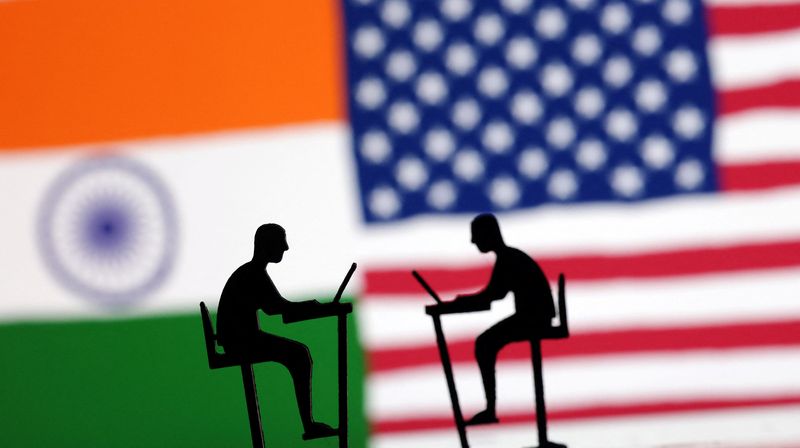By David Lawder
(Reuters) – The United States and India extended a standstill agreement on U.S. retaliation against India’s digital services tax until Sunday, aligning with a fast-approaching deadline for a global deal to reallocate tax rights to the world’s largest and most profitable companies. , the US Treasury Department said on Friday.
In a brief announcement, the Treasury said a political compromise from November 2021, which expired on March 31, would be extended until the end of the month as negotiations on the “Pillar 1” tax treaty continue.
The Pillar 1 deal is at risk of collapse as the US, India and China have failed to agree on key elements of the deal relating to transfer pricing calculations to help determine local tax liabilities.
The stakes of the last-minute negotiations are high. The failure of the deal could prompt several countries to reinstate their taxes on US tech giants such as Apple (NASDAQ:), Alphabet’s Google (NASDAQ:) and Amazon.com (NASDAQ:) and risk punitive tariffs on billions of dollars in exports. to the US
The extension of the US-India agreement also brings it in line with the expiration of similar agreements with six other countries that had introduced taxes on digital services: Austria, Britain, France, Italy, Spain and Turkey.
These countries suspended their taxes on digital services shortly after a two-pillar tax agreement was signed by nearly 140 countries in October 2021 to impose a 15% global minimum corporate tax and complete negotiations on the redistribution of certain tax rights for large multinationals to countries where they sell goods and services. This was intended to replace taxes on digital services.
At the same time, the U.S. Trade Representative’s office agreed to suspend planned trade retaliation against the digital taxes while negotiations were completed.
The U.S. negotiations are being led by the Treasury Department, where a spokesperson declined to comment on the status of negotiations.
A USTR spokesperson also declined to comment on next steps, but added: “As we have said previously, we oppose taxes on digital services that unfairly target U.S. companies, and the negotiations on the Inclusive Framework of the OECD/G20 offer the best path to address the challenges that arise. The digitalization of the economy poses a threat to the international tax system.”

Treasury Secretary Janet Yellen told Reuters at a G7 financial meeting in May that India and China were standing in the way of an agreement on the alternative transfer pricing mechanism, known as ‘Amount B’, but that talks continued.
Italy’s finance minister also blamed US demands for the inability to agree on terms. Italy is seeking an extension of the US standstill agreement and sources told Reuters earlier on Friday that Italy has asked Google to pay $1 billion in unpaid taxes.


